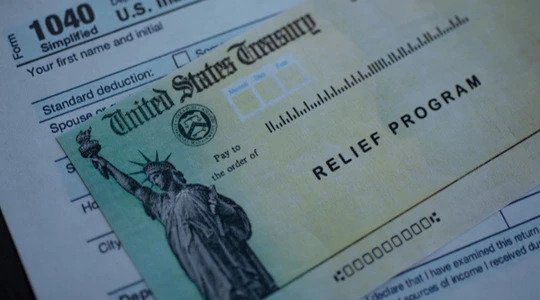
Through the Coronavirus Aid, Relief, and Economic Security (CARES) Act, American taxpayers continue to benefit from stimulus checks mailed or deposited into their bank accounts. This monetary relief is meant to thwart the economic implications of the COVID-19 crisis, as many Americans lost their jobs and income sources.
The IRS considers Americans’ wages earned in 2019 or 2018 to determine eligibility. Those
who made an adjusted gross income of $99,000 or less receive the full amount of the stimulus check at $1,200. Those who are married and filed jointly receive the full amount of $2,400, as long as their adjusted gross income did not exceed $198,000. For each dependent under the age of 17, Americans receive an additional $500 per child.
Determining whether you’re eligible to receive a stimulus check seems straightforward enough, but specific circumstances convolute determining the final amount. If you’re wondering whether the IRS or a private company can seize your economic stimulus check, consider the following points.
The IRS May Seize Your Stimulus Check on These Grounds
There are generally very few reasons that the IRS or private company may seize or garnish your stimulus check. Grounds that would grant the IRS permission to confiscate your check include if you owe back child support or have significant debt in collections. The following provides further details on reasons the IRS may seize your stimulus check:
You’re Behind in Child Support
You may not see money from your stimulus payment if you’re in the Treasury Offset Program because of unpaid child support. If you’re past due on child support payments, the IRS will intercept and offset your stimulus check payment.
You Must Pay a Debt in Collections
Debt collectors may garnish money from your bank account if you have an outstanding debt. Private companies may also garnish your funds if you have a court judgment against you. If you have debt in collections, it’s worth exploring possible workarounds, such as requesting a paper check instead of direct deposit.
You Owe Your Bank Fees
If your bank account is overdrawn and you request a direct deposit for your stimulus check, nothing prevents the bank from taking out the amount necessary to put your account back in good standing. Whether it’s overdraft fees, monthly maintenance fees, or anything else that puts your account in the red, these bank fees will be deducted from your payment.
The IRS Will Not Seize Your Stimulus Check for These Reasons
The stimulus payment is meant to help Americans financially through these unprecedented
times. Very few grounds, like the ones mentioned previously, will permit the IRS to seize your check. The IRS will not take your stimulus payment for any of the following reasons:
You Owe Taxes to the IRS
The IRS will not seize or offset your stimulus check if you owe taxes to the United States
government. Keep in mind that if you do have tax debt from income made in 2019, the deadline was pushed back to July 15. Taxpayers in California who owe state taxes also have until July 15 to make the payment.
Your Child Turns 17 in 2020
The $500 you receive for your child dependent in 2019 will remain in your bank account, even if it is his or her 17th birthday in 2020. At the same time, if you have a baby in 2020, you should be able to claim that $500 when you file your taxes for 2020.
Your Student Loans Are in Default
Student borrowers have no need to worry if their loans have defaulted. The IRS will not seize
stimulus checks as repayments on student loan obligations. Moreover, the CARES Act supports federal student loan borrowers by pausing payments until September 30.
Contact an Experienced Tax Debt Attorney in Orange, California
There is often a considerable amount of confusion regarding taxes and laws the state and IRS must follow. If you’re facing tax debt or have questions concerning problems with the IRS or state, you could greatly benefit from contacting an experienced tax debt attorney.
Morgan Sebastian Law, PC, is a tax debt law firm in Orange, CA, advocating for taxpayers before the IRS in all 50 states. Attorney Becky Rose Sebastian has vast experience negotiating with federal and state tax agencies to help her clients with the best tax resolution possible. To schedule a consultation and speak with Becky about your tax issue, call 877-938-1350 today or complete a contact form.

